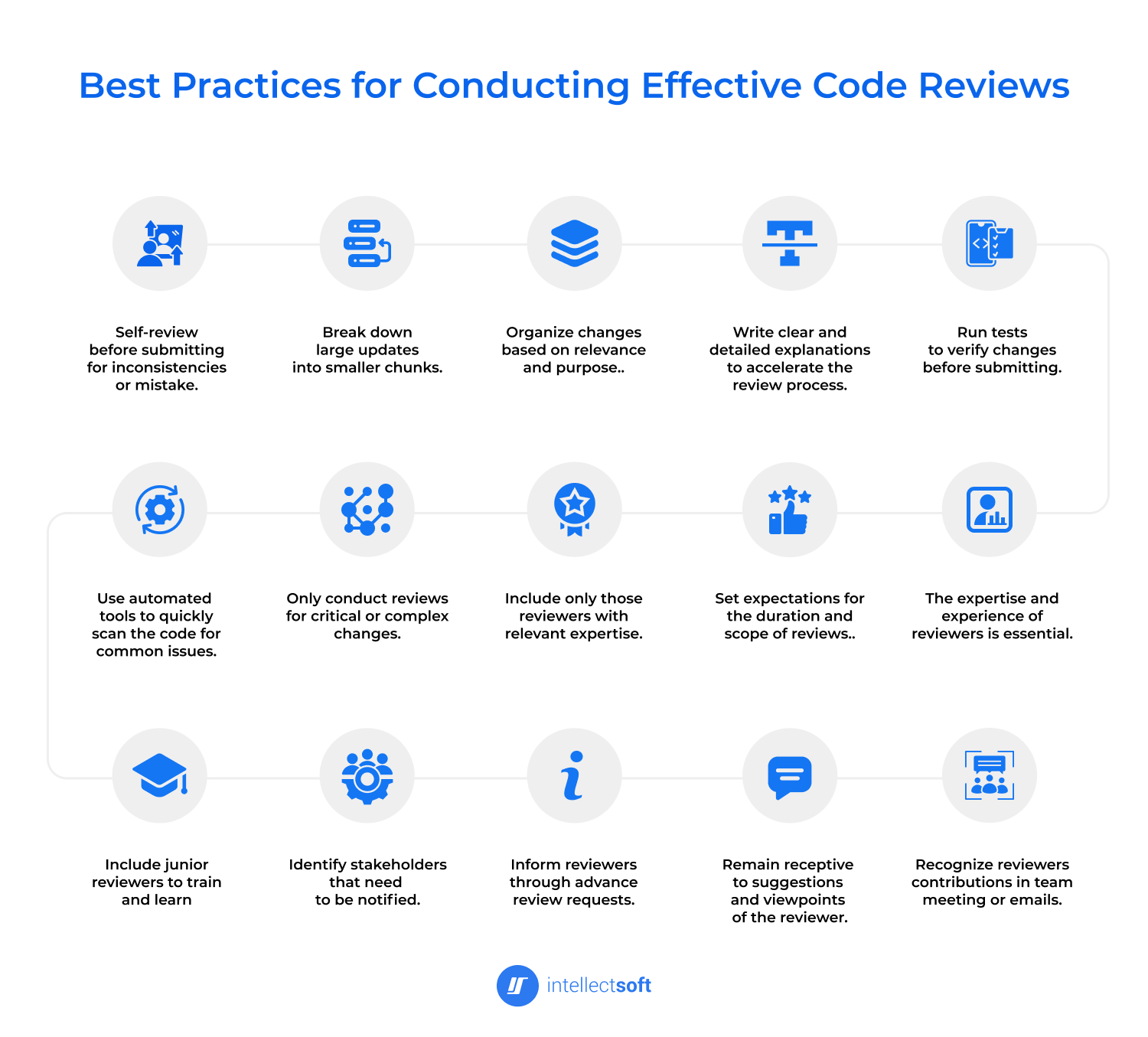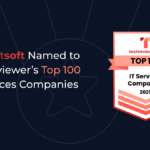Finding the right tech experts who advise, coach, and lead is not easy at all. Whatever niche expertise or experience you are looking for, hiring takes time and doesn’t always guarantee that talent will stay, especially when you need them most to achieve your annual goals.
On top of that, having in-house experts is costly, and perhaps you don’t have the resources for that right now. Here’s a solution: you may need a dedicated team.
Let’s explore some scenarios where dedicated teams are the right choice. Think about your current situation. If your development team is strong, your biggest hurdles might be management-related. You may need a solution to oversee processes, maintain velocity, and keep projects on track.
But what if your team lacks expertise? In that case, the challenges shift to technical execution. Another common scenario: You may have a solid team of junior developers but need senior engineers to guide and mentor them.
A dedicated team of developers is the perfect solution in all of these cases. Dedicated developers operate as a cohesive unit, adapting to evolving project goals while providing a transparent pricing model. This makes them ideal for long-term projects requiring continuous focus and expertise, particularly where frequent iterations and refinements are necessary. But now the real question is: how do you find the right one and make the most of it?
To answer that, let’s turn to Alex Tyschenko, our Solution Architect, who will break it down using a real-world example from one of our clients in the luxury hospitality sector (under NDA). His team worked on Loyalty Programmes, Guest Apps, and operational optimization for a major global hotel chain. In this article, he reveals how a dedicated team can significantly reduce costs, bring in top-tier experts, build long-term trust, and drive lasting business impact.
He also shares practical tips on how to make communication with a dedicated team more productive. Keep reading to discover how to leverage a dedicated team.
Let’s start by defining and comparing the two most popular engagement models.
Understanding Dedicated Teams
A dedicated team is a group of skilled professionals brought in for the long haul to work on specific projects. This model is perfect for companies that lack certain expertise in-house.
Unlike freelancers juggling multiple projects, a dedicated team works exclusively on your tasks, fully focused on your goals. They can be tailored to fit your project’s needs, seamlessly integrating with your existing team, whether they’re working remotely or from a nearshore location.
Think of it as having a team of experts fully committed to your success. Whether you’re looking to fill skill gaps, scale up, or speed up development, a dedicated team gives you the expertise and focus to make it happen.
Quick start: How Do Dedicated team and Team Extension Models Differ?
Simply put, a Dedicated Team works autonomously. It has its own area of responsibility and relies less on the client. In contrast, a Team Extension is deeply integrated into the client’s internal processes, working alongside their specialists as part of the in-house team.
Both models have unique characteristics, and much depends on the client’s structure. If the client’s team is strong, the main challenges tend to be management-related. However, if the client’s team lacks expertise, the challenges are usually more technical. When deciding to hire dedicated teams, it is important to consider potential drawbacks such as communication barriers and the need for a reputable service provider to navigate these challenges effectively.
As Alex shared, mixing the two models and testing each one is a perfectly normal practice. After all, how else would you know which model works best for you? A crystal ball? If only!
Let’s take a look at how one of our clients combined both models and the value it brought them.
Case Study: How the Engagement Models Evolved
Alex Tyschenko shared that we worked as a Team Extension at the start of the partnership. Some of our team members were fully integrated into the client’s organization (team extension), while others remained on our side at Intellectsoft (as a dedicated team). The client had three such teams, each managing daily collaboration across different cultures and time zones. Partnering with a reputable service provider is crucial in managing these collaborations effectively.
Over time, we transitioned to a Dedicated Team model. All teams handled different responsibilities. While all of them worked towards the same business goals, the Dedicated Teams became more independent in execution and decision-making.
Alex added:
Sometimes, the clients themselves don’t even notice the difference! We were still deeply integrated into their processes once we transitioned from team extension to a dedicated team. We already knew the ins and outs of their operations. We knew the gaps, the strengths, and exactly how to improve things. At that point, we were practically part of the business.

What Made the Client Change the Model?
Alex shared that the main reason for switching models was the time zone differences. The client reviewed their approach and decided that a more independent team structure would help improve efficiency and workflow.
At the beginning of the partnership, the working model kept evolving. The idea of moving to a Dedicated Team came up when the in-house development team size was reduced by half. The client wasn’t completely sure whether a Team Extension or a Dedicated Team would be the better fit, so we guided them through the decision-making process. We quickly integrated new developers into the team to adapt to project requirements, ensuring flexibility and maintaining agile practices.
Achieving Effective Communication: Insights from Our Partnership Using Agile Methodology
Here is some advice from Alex on what facilitates clear and effective communication:
- A well-defined team hierarchy following the agile methodology, particularly Scrum.
- Everyone should clearly understand the plan and how the team collaborates internally.
- Involvement in key roles, including business analysts, developers, QA specialists, and DevOps engineers.
- Daily communication, regular demos, and requirement clarifications as integral parts of the process.
Strong, results-driven collaboration starts with well-structured communication. Establishing clear interaction mechanisms allows for uninterrupted cooperation between teams.
Alex shared that an organized workflow and an established process are a must to yield the best results. To maintain clarity, he recommends using Agile methodologies like Scrum.
This method has a clear structure with defined roles and responsibilities, which helps prevent misunderstandings. A structured approach to solving problems and removing blockers also keeps things running uninterruptedly.
It can be helpful to have a leader (champion) who oversees the process and makes sure everything stays on track.
Alex shared:
Leadership plays an important role. A strong team needs leaders who keep processes under control, maintain clear communication, and take a structured approach to problem-solving. Without proper leadership, any collaboration can quickly become chaotic.
Code Review Best Practices

Alex recommends following clear architectural, code style, variable naming, and logic structure guidelines during code reviews. This may take time at first, especially for an Extension Team, but it is essential for keeping code quality high in large teams.
If our team works independently (Dedicated Team), we handle code reviews internally, requiring less coordination. However, when working within a client’s team (Team Extension), it’s important to follow their processes to avoid misunderstandings and conflicts closely.
Dedicated Teams: Key Challenges Teams May Face
Time zone differences can make it harder to coordinate international teams. Keeping a strong team culture is also crucial, as remote specialists need to feel engaged and connected to the project.
These challenges can be overcome with clear communication, Agile methods, and hybrid team models when needed.
Common Project Management Challenges Include:
- Time zones – Coordinating across different time zones can slow things down.
- Team culture – Remote teams must feel included and valued.
- Lack of an established process – Without structure, things can get messy.
- Differences in expertise – A gap between senior and junior developers can create inefficiencies.
- Soft skills – Emphasizing soft skills is crucial for maintaining team culture and ensuring effective communication.
One of the biggest hurdles on the list is technical expertise. For example, our team might consist of senior-level specialists, while the client’s team has more junior developers, creating a knowledge gap that needs to be bridged.
Cultural differences also play a role, especially in code review practices. It is worth double-checking that the code is reviewed properly and that feedback is constructive and follows best practices. These differences may cause conflicts at first, but with structured communication, mentorship, and a shared coding approach, they can become learning opportunities for both teams.
Business Impact with Dedicated Teams in Software Development
We strongly recommend having clear requirements and defined objectives to get the most out of a dedicated team. With this foundation, you can fully benefit from our specialists’ expertise and efficiency.
Here are just a few advantages:
- Scalability – Easily scale your team up or down as needed.
- Cost Savings – Reduce expenses through optimized processes.
- Strong Tech Expertise – Ensuring powerful solutions and strategic guidance.
- Strategic Thinking – Aligning business objectives with team goals to maximize product value and enhance decision-making.
- Leadership & System Audits – Even while working autonomously, our teams have deep expertise in cloud, software architecture, data, and infrastructure. We don’t just bring value from a narrow skill set; we take a holistic approach to problem-solving.
What If You Don’t Have Clear Business or Tech Objectives?
Most often, clients come to a tech partner like Intellectsoft with a clear understanding of their needs. Business-related tasks often involve strategic consulting on team scaling, new product launches, or broader digital transformation. These discussions usually take place before the client engages with our services.
However, if you feel the need for change but don’t yet have precise objectives, or if you need guidance on setup, transformation, or training, we recommend booking a consultation with our business analysts to define the best strategy. Project management skills are crucial in defining and achieving both business and tech objectives, ensuring that resources and teams are effectively coordinated to meet strategic goals.
For instance, one of our clients had large-scale global goals. Alex shared:
“Our client breaks down global goals into smaller milestones to determine which business cases to implement first. Once that’s clear, the technical solutions and implementation naturally follow.”
Benefits of the Dedicated Team Model
Going for a dedicated team comes with some solid benefits: cost savings, faster results, access to top talent, flexibility, and smoother communication. Instead of worrying about office space, equipment, and overhead costs, you get a ready-to-go team that’s fully focused on your project.
Most importantly, it’s about getting the right people on board. A dedicated team gives you access to experienced professionals with the exact skills your project needs. That means faster development, better quality, and fewer headaches for your in-house team.
In short, a dedicated team helps you move faster, smarter, and more efficiently without the usual hiring and operational hassles.
How Does a Dedicated Team Help Reduce Costs?
Cost savings often come from process optimization and strategic resource allocation, which can directly or indirectly lead to increased profitability.
Here’s an example from Alex:
We moved away from costly ESB (Enterprise Service Bus) systems – once requiring millions in investment – and replaced them with more efficient, self-managed solutions. Likewise, our implementation of Device Farms has delivered significant resource savings.
Key Roles in a Dedicated Team Model
A dedicated team typically consists of a project manager, business analyst, UX/UI designers, software developers, QA engineers, and other specialists, including DevOps engineers, technical writers, and designers.
How Do We Measure Success in Partnerships?
Each client’s KPIs determine what we deliver, as their business objectives guide our approach.
Looking at our partnership with a hospitality client, we identified a few key success factors that Alex shared:
“One of the main reasons for our successful collaboration was technical expertise, which was precisely what the client lacked. Many of our clients face specific technical challenges, and after seeing our recommendations in action, they develop trust in us as a long-term partner. “
A results-driven approach also played a crucial role. When we were brought in, a strict deadline could not be pushed back. We didn’t just help them meet the deadline. We ensured the solution was high-quality and helped them prioritize tasks, determining what needed immediate action and what could wait. Understanding their ultimate goal for production and launch was essential, and we aligned our work accordingly to ensure they achieved it.”
So, if you’re looking to strengthen your development team, we’re ready to deliver:
- Technical expertise – We help you prioritize in the chaotic world of development.
- Leadership and management – Guiding teams towards your goals.
- A results-driven approach – Focused on delivering measurable impact.
- High-quality outcomes – We secure speed and quality, whether it’s an app, system, or something entirely different.
How Is the Approach to Dedicated Teams Changing?
The idea of dedicated teams is changing. More companies now want complete solutions instead of just hiring developers. They need expert advice and digital transformation support. Companies like Intellectsoft are no longer just tech providers; we act as consulting partners, helping businesses plan and execute their strategies.
A dedicated team model goes beyond hiring. It’s a strategic approach that helps businesses scale, innovate, and optimize operations. The dynamics and structure of a dev team are crucial for successful project execution.
Companies that rethink their workforce strategies and embrace dedicated teams as a long-term solution will gain a competitive edge in the market.
Start leveraging dedicated teams the right way to drive your business forward. Book a consultation with our experts today.
Regardless of the size or complexity of your project, we can help shape your future workforce in a way that best fits your needs. Simply share your ideal team requirements, and we’ll take care of the rest.
Subscribe to updates
Source link

















